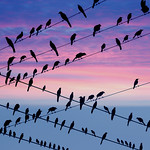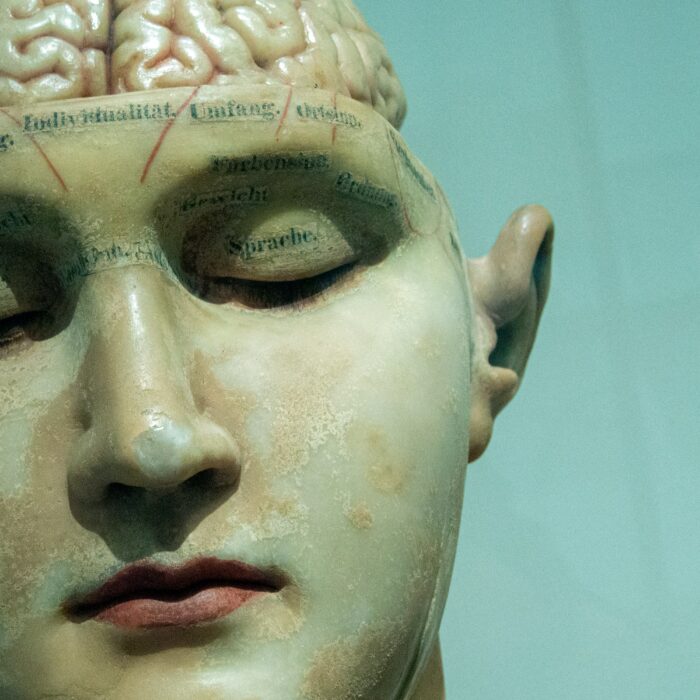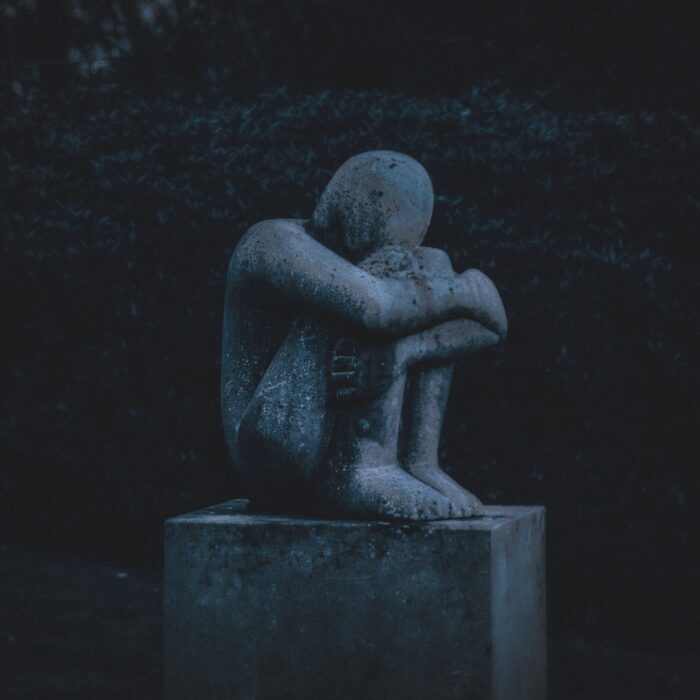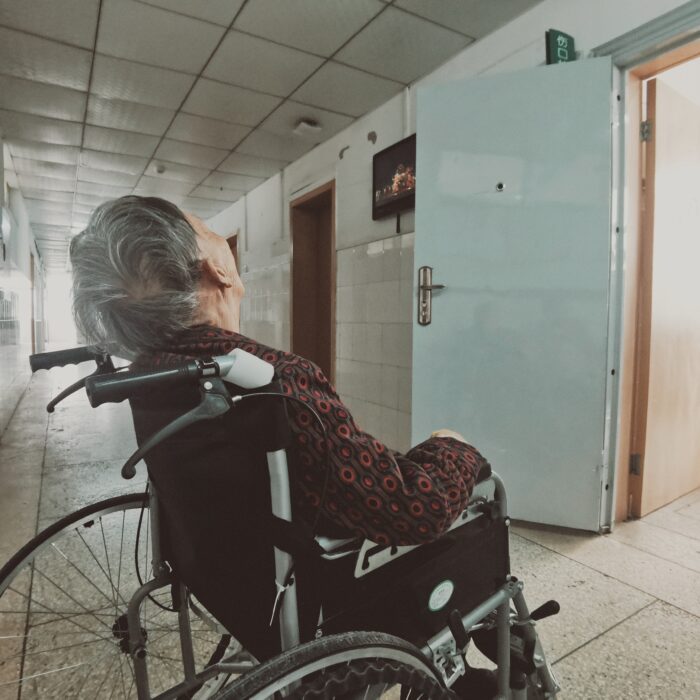You have no items in your cart. Want to get some nice things?
Go shopping
The birds had arrived from the hatchery three days ago and had grown well in size. Their feathers had begun to come through white and scruffy. Petru had walked the house every hour during the day and every two hours through the night, to make sure the chicks were eating and drinking and the house was at the right temperature and the litter wasn’t wet. He knew them already and they knew him.
For the first time this cycle, he opened the pop-holes along the side of the house. The birds closest to the pop-holes looked through them but didn’t climb out until he squatted down into view and clicked his tongue against the roof of his mouth. Encouraged, they came outside. Some pecked at the ground, others came out as far as the saplings to bathe in the dirt. When he’d opened all the hatches, he went inside the house to hurry the last of the birds out.
He raised the feed and water lines from where they hung just above the ground so that he could turn the pine wood litter on the floor, loosening the shavings with his fork. A sweet smell rose from them. There were haybales scattered about the house for the chickens to perch on in the night. Behind one he found a bird that’d been pecked very badly. It moved a wing. It couldn’t raise its head from the floor. There were patches over its body that were missing feathers and were dappled with blood. Its cluck was strained, quiet. He wrung its neck, feeling its tendons trying to resist the opposing directions in which he pulled them. He lay it on the bale. Its body twitched as though it hadn’t passed the moment of death but was still approaching it and had some chance of redirection.
After he’d finished turning the litter, he took the dead bird by its legs, put it in the incinerator outside the house but didn’t turn it on. It was early and he reckoned there’d be birds brought from the other houses. He sat on the slope among the saplings where he smoked and drank coffee from his flask. Some of the birds came up to him and moved away but some settled around him and he stroked them along their backs.
At the end of the day, after he’d finished his other work, he walked to the fence beyond the saplings and back towards the house, the flock meandering before him. Inside, they jostled for space around the feeders. A few birds didn’t go in but wandered along the fence. He went after them, picked them up, carried them to the house.
The Poles were smoking and drinking lager outside their caravans.
“Only just finishing?” the younger one asked in English.
He nodded as he passed.
“Slow, eh,” the older one said. “But it is as fast as a Cygań can work.”
The younger sniggered.
Petru shrugged, unlocked the door of his caravan. Before he went in, the younger Pole called him. “Here,” he said, taking a few coins from his pocket and throwing them onto the ground. “That is for you, Cygań.”
Petru looked at the coins but didn’t move to pick them up. “Fuck you. I am not a Gypsy.”
The Poles laughed. The older one said, “You are from Romania. You are Gypsy.”
He lay on the uncomfortable sofa and called Sorina.
“What’re you doing?” he asked as he watched her move in and out of the frame, a constant reshuffling of pixels.
“Changing the sheets,” she said from somewhere in the room.
“Can you stop for a moment?”
She picked up the phone and he saw disorientating shapes and colours as his range of vision swung up and swung down and all he heard was muffled thumps. When the phone stopped moving and the pixels settled down, he could see her face clearly and the top of the sofa and the wall of their sitting room.
“Better?”
“Yeah. How’re you?”
“I’m OK.”
“Rita?”
Sorina blew her cheeks, rolled her eyes. “She isn’t sleeping at night,” she said.
“Let me say hello to her.”
“Well, she’s sleeping now.”
“Oh. Can I see her?”
“I dunno. I don’t want to risk waking her up. If she wakes up, she’ll be crying all night.”
Neither of them spoke. Her hair was tied back but around her ears there were loose strands floating outwards and she didn’t have make-up on which made her eyes look a little smaller and gave the impression of glistening nakedness. When he met them with his, she looked away from the screen. She had on her patient expression that he associated with supermarket queues and ironing. In the silence, he worried that he’d been rearranged in her feelings to exist alongside those mundane things.
“You look very nice.” The compliment felt awkward coming from his mouth, like the first one he’d given her, over-rehearsed and unconfident.
She rubbed her cheeks with her fingertips. “I look like shit today.”
“No. I think you look good.”
She refused the compliment with a shake of her head, unsmiling. She wasn’t the kind to look for compliments, he knew, and accepted them sparingly.
“What’s new, then?”
She shrugged.
He watched her, looking despondently at him and then at the floor. He rolled onto his side, scratched his back.
“This sofa,” he said, “is so uncomfortable.”
“Don’t sit on it then! Every time you call you tell me how uncomfortable the sofa is!”
“Alright, alright.” He stopped scratching his back and lay still and abashed.
Sorina rubbed the side of her nose.
“Has Vera cleared her stuff from the stairwell yet?” he asked.
She became frustrated. As she spoke, her movements slowed and lost time with her voice. One jarred against the other. All the details of her face disappeared into simply coloured pixels before freezing completely. She sounded electronic, stammered, became silent. He waited, staring at the screen. Outside, the Poles were talking. He didn’t understand what they were saying but envied the companionable tone they used. The colours on the screen began to move again, slowly then quickly. Then the sound of her voice returned, changed from electronic to organic. Her face and her words became clear again. The illusion of closeness was restored to him.
“Sorry,” he said, “the connection went bad. I missed what you said. Say it again.”
She was exasperated. “I’m not saying it again. I can’t be bothered. It doesn’t matter anyway.” She looked away.
When he’d been at home, silence between them had been comforting. But after he’d left it’d become pernicious and all he wanted was to dispel it before it took them over completely.
“This morning I found one of my chickens had been almost pecked to death by the others. It looked like it was in a lot of pain. I don’t like it when they do this to each other. I—”
“Why d’you have to tell me about it? I don’t want to hear about the birds. Every time we talk you find a way to bring up the birds!” Her voice wobbled and for a moment he thought she was going to cry but she didn’t.
“Sorry,” he said. “I didn’t realise I did that. I just wanted to tell you something.”
“It’s OK. It’s OK.” She sat thoughtfully and said, “I need to go now. Mihail and Zara will be here soon.”
“OK. Say hello from me.”
He kept the smile on his face until she ended the call. He put his phone down and thought he should move from the sofa but couldn’t get up so he lay there until it was time to shower and go to bed, where he smoked and hoped he wouldn’t have that dream again where Sorina’s eyes were the eyes of a chicken and her mouth was filling up with blood.
*
At the base of the fence, among the long grass, there was a mess of feathers. He looked around but couldn’t see the bird and knew that a fox had taken it. Two birds had followed him up to the fence and were pecking at the grass by his feet. It seemed to him that they had a nervous curiosity in their eyes. He shooed them away but they didn’t go far and had returned by the time he was crouched down. He picked up the feathers, untangling them from the long grass, so that there was barely a trace left of the bird that had been taken there.
The younger Pole arrived at the incinerator at the same time he did. “Hello, Cygań.”
Petru nodded minutely at him. The Pole had a bird in each hand, their feathers coated with green algae.
“Found them in the butt. Take up the lid.” He nodded at the incinerator.
Petru drew the Pole’s attention to the feathers that filled his hands.
The Pole shrugged and sniggered. “So what?” he said. “Throw them away and take up the lid.”
“I don’t want to. It will be messy and it will upset the birds.”
“Kurwa.” The Pole dropped a bird on the ground by Petru’s feet, opened the lid and slung the one he was holding in.
“The birds do not care about the feathers. They do not know these are feathers from a dead bird and they do not care about dead birds. They do not understand.”
“Yes, they do.”
Petru dropped the feathers in.
The Pole laughed. “Soon you will be fucking these birds.”
He nodded at the other bird he’d brought.
“Start with that one.”
“Why don’t you keep the lid on the butt? Then they don’t drown.”
The Pole shrugged. “These are only two chickens. Who gives a fuck?”
After the Pole left, Petru picked up the bird, weighty with water, dropped it into the incinerator. He waited for a few minutes in case the older Pole came with any birds. When he didn’t, Petru started the incinerator and left.
The Poles were outside their caravans and as he passed them the older one pretended that he was masturbating. “Did you have fun, Cygań? Are all of your birds well fucked?”
The younger one sneered at him.
*
When he called Sorina, the baby was crying and wouldn’t settle. She held her up to the camera and he tried to talk to her but he couldn’t keep her attention. They tried to talk over the crying but couldn’t and Sorina became frustrated. After she’d hung up, he ate and then lay on the sofa but couldn’t stand being on his own so he left and, in the dark, walked down to the house. Inside, the smell of wood and feathers comforted him. He heard the rustling of one bird against another, the clucking. He carefully shifted some birds out of his way with his foot, sat down and found a bird in the dark, picked it up and held it on his lap where it sat warm and still. In the darkness, the sounds seemed to come from above and below, as well as from each side of him. When he thought of the floor he was sat on, it became gaseous and mobile and for an instant he felt as though he were floating. The sound of the birds became more prominent. It altered the dimensions of the house, made it shapeless and infinite. The air seemed thicker so that he had to breathe it in deeply. It was warm. He fell asleep believing he was somewhere other than the world. When he woke in the morning, with birds congregated around him, he knew he’d slept well.
#
He let the birds out, turned the litter, sat with them beneath the saplings to drink his coffee and smoke. At night, he gathered them in. As they grew bigger and stronger, fewer of them died, though they were always vulnerable to the foxes and he’d sometimes find the remaining feathers of a bird. He avoided the Poles when he could and ignored them when he couldn’t. The calls to Sorina were infrequent and left him with a feeling of endangerment. Only occasionally, when he couldn’t stand to be alone in the caravan, he slept in the house among the birds.
*
The collectors came in a lorry at night when the birds were sleepy. Petru was waiting for them outside the house. Three men alighted.
“Howbeon, Peetro?” asked the one in charge.
“I am doing good, cheers. And you?”
“Not too shabby, mate. Alright to get started?”
“Yes. Please tell them to handle the birds gentle.”
“Course they will.” The man instructed the other two to start. As they unloaded the cages, Petru opened the house doors.
“You givin’ us a hand again?”
“I will help, mate.” Petru nodded.
The one in charge smiled. “Good man,” he said.
“Cheers,” Petru said.
They began filling the cages. Before long the flock was chattering, confused and fearful. Petru worked in silence, as quickly as he could, quicker than the other three who spoke among themselves as they worked, who no longer heard the birds. He wanted to handle as many of the birds as he could and wished he could’ve collected them all himself.
*
For a week he cleaned and disinfected the house and repaired the feed and water lines. Fresh litter came and he raked it evenly over the concrete. It was a lonely week and he took care to make sure everything was ready for the next flock. Sorina didn’t answer the phone the few times he tried calling. In the evenings, he looked at pictures of Rita and tried not to miss her. He was impatient for the chicks to arrive so he could walk the house every hour in the day and every two hours in the night.
*
When the chicks were delivered Petru helped the driver unload the trays and empty them carefully on the litter and watched the chicks orientate themselves and find the feed and the water.
“You got un be there, mind,” the driver said, pointing.
Petru looked at the chicks around him and saw one listing away from the flock, its eyes white. Its chirp was drawn out, weak, out of tune with the others. He stepped on it, picked it up, carried it out of the house. There were chicks that’d died on the way from the hatchery and he knew there’d be more dying over the next couple of days because the chicks were delicate and could die at any moment. He collected the dead ones up and put them in the incinerator. He and the driver loaded the empty trays onto the lorry.
“Alright, mate,” the driver said. “See yer in a couple of months.”
“Cheers, mate, ta,” Petru said.
After the lorry left, he sat on the embankment among the saplings and scratched-up turf, drank a cup from his flask and smoked. When he listened, he could hear the chicks in the house. He watched a lorry coming onto the farm, driving to another house and he watched a lorry leaving. The day was warm and he drank another cup from the flask, comforted knowing his flock was in the house before him. He looked forward to walking among them.

About Josh Knight
Josh Knight lives and works in Bristol. He studied English and Creative Writing at Aberystwyth University.




